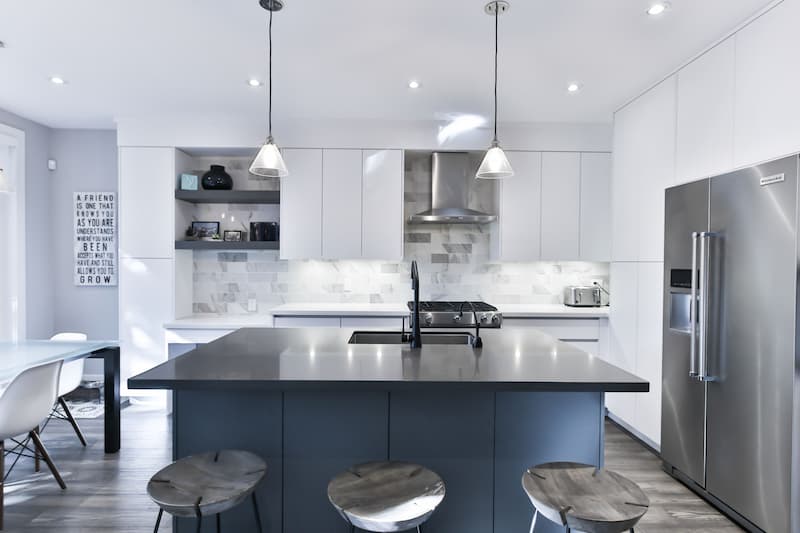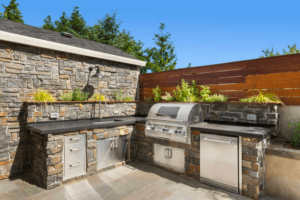With new materials such as Quartz surfaces and sintered stone flooding the market, many of our customers are struggling to figure out whether these newcomers measure up against traditional, natural stones such as marble and granite. The short answer is that yes, they do.
Engineered stones like Caesarstone have many outstanding qualities and are an excellent choice for kitchen worktops. However, they do differ from natural stones in key ways, so the answer to the question ‘which is best?’ is always going to be ‘it depends!’ Read on to find out the pros and cons of Caesarstone vs Granite. If you need more help making the right choice for your project, please contact us directly.
What’s the Difference Between Caesarstone and Granite?
The fundamental difference between Caesarstone and granite is that Caesarstone is an engineered stone made from engineered Quartz. Whereas Granite is an igneous rock and natural stone perfect for any kitchen design.
Although Caesarstone is 93% quartz, it also contains some resins, dyes and bonding agents. This is what holds the quartz particles together. Granite is formed in the earth’s crust over thousands of years and hewn out in lumps from quarries then cut to size.
Colour Choice and Consistency
As a natural stone, granite slabs are available in exactly and only the colours that nature allows. There are far more shades of granite countertops available than most people imagine as minerals in the rock can dye it red, green, or even a subtle purple during its formation. Caesarstone is a manufactured stone product, which means that its colour selection is limited. New colours and textures are brought out every year.
Caesarstone shades tend to be inspired by natural rock though, so don’t expect fire engine red or egg-yolk yellow (although other quartz companies do offer this). Granite is also more likely to vary as it’s produced by natural fluctuations. Caesarstone surfaces are designed to be consistent. This means that if you’re matching tiles or slabs over a large surface it’s much simpler to do so.
Food Preparation, Cleaning and Hygiene
Many of our customers are looking for bathroom or kitchen countertops, so health and hygiene is paramount. At Surrey Marble and Granite, we fully seal all natural stone worktops before they leave our factory. Caesarstone countertops are then intrinsically sealed as part of the manufacturing process.
This means that the two are pretty much on par in terms of health and hygiene: both are suitable for food preparation and neither will absorb liquids, smells or food particles. Both stone countertop materials are easy to clean as spills and dirt can be wiped off with a cloth and a gentle cleaner.
Durability and Longevity
Quartz countertops are one of the few substances in the world that’s as tough as granite. Meaning the two surfaces are well matched. While we know that granite surfaces such as floors can last centuries, Caesarstone has only been around for a few decades.
However, what has become clear is that Caesarstone is truly as tough as rock being stain resistant as both substances are incredibly hard to chip, stain, scratch, and hard to break. While we don’t have solid evidence, it does seem likely that you (or perhaps your grandkids) will get bored of your Caesarstone or granite long before either wears out.
If you’re after more information, feel free to contact us today!





